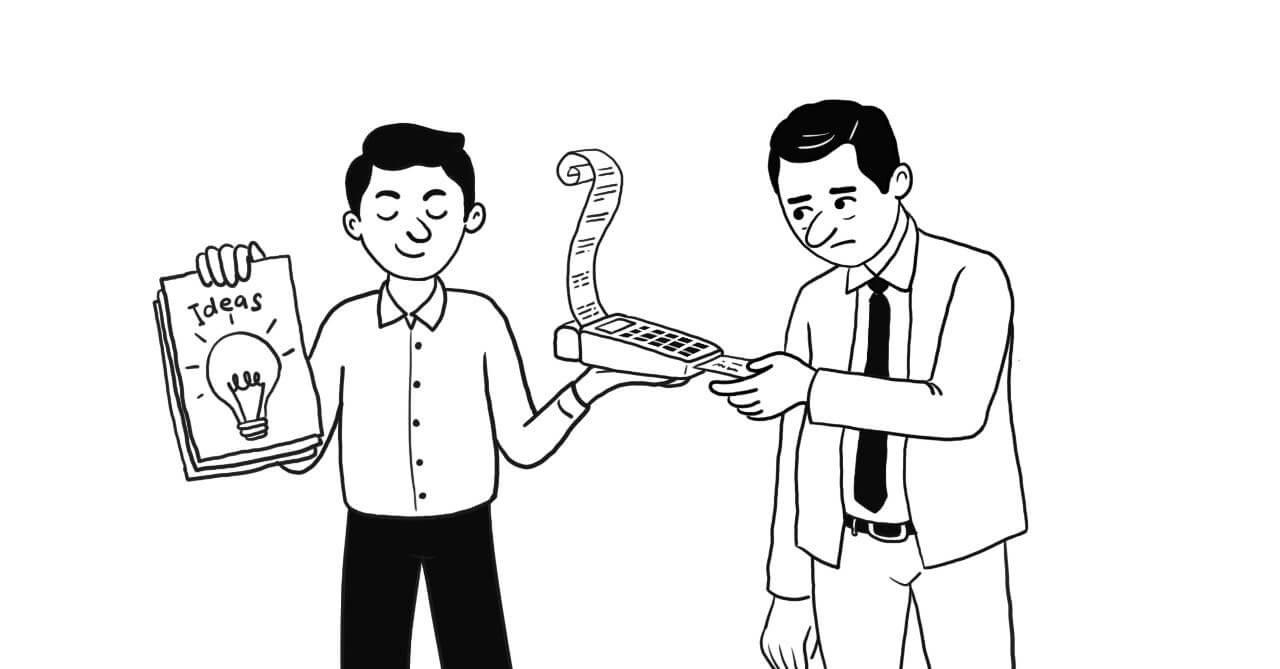In the words of one of India’s former telecommunication companies – “An idea can change your life.” And yet, in the world of advertising, ideas are seldom given their due worth. Not only do clients tend to value execution over ideation, they often take the latter for granted entirely.
If you’ve found yourself being pushed aside for ideas that were your brain babies, this article is for you. And if you’ve ever busted your ass to pitch the perfect idea with no acknowledgment in return, this article is also for you. Here’s how you can get brands and clients to recognize the hard work that goes behind coming up with an idea, even if they don’t want to go ahead with it.
Pitch please
Picture this: You are invited to pitch some ideas to a new client from a relevant industry. You pack your presentation with the best ideas you can come up with, hoping to win them over and get them on board. Everything goes well and they seem to love your ideas. Just when you think you’re about to crack the deal, they smile politely and pull the plug.
Bottom line? They walk out of that meeting with a ton of brilliant ideas, and you walk out with a big fat nothing.
In India especially, these pitch meetings are becoming a regular and accepted way for clients to get a variety of different ideas for free. What they do with those ideas, more often than not, is entirely up to them. They may choose to throw all of them away, or craft a campaign by making some minor tweaks to the core thought of your idea, passing it off as their own. After all, it’s much easier (and cheaper) to get a third party to swiftly execute the idea than to pay your advertising agency for the whole process. But what they may consider ‘recycling’ is nothing less than theft.
It is up to you to make sure you are in complete ownership of your ideas before, during and after pitching them to a potential client. You can ensure that you leave an email trail with all of the ideas shared. This will come in handy later, in case your hard work is passed off as someone else’s. You can also sign a nondisclosure agreement with the client before your presentation for added security. And lastly, if you find yourself in a position where you feel like your ideas were cheated away from you or not given their due credit and worth, speak up. Because if you don’t stand up for your ideas, who will?
Pitch it, bill it
One way to make the pitching process fairer for both parties is to have a fee assigned to it. We know what you’re thinking: Why would clients suddenly start paying for ideas that they can get from others for free? Well, they may get some ideas without paying, but they won’t be getting yours. Your past work should give them a glimpse of what you’re capable of.
This act will show that you believe in your ideas enough to not want to give them away for free. It’s likely to pique the interest of brands, which might get you your initial meeting. And if the idea goes through, you can subtract the pitching fee from the total fee of execution. If not, you still get rewarded and recognized for your creativity, time, and energy.
Having said that, it may not be easy to find clients who are okay with such a model. It may be difficult to walk away from them, but if you choose to, you’ll be setting a standard for your ideas which will sooner or later be recognized by players in the industry. And who knows, other agencies and creative professionals might soon follow in your footsteps and help you build a future where ideas are given their due worth.

